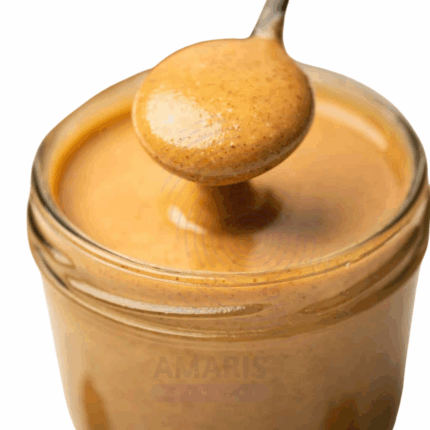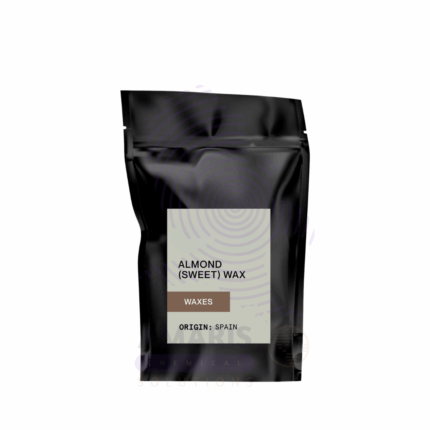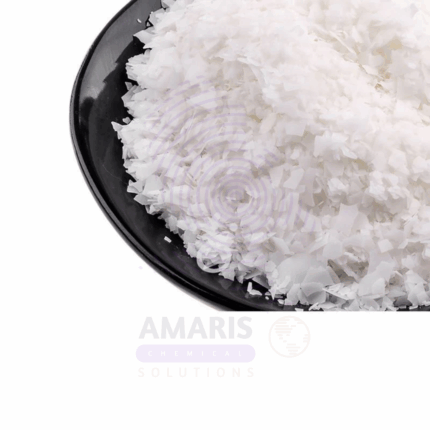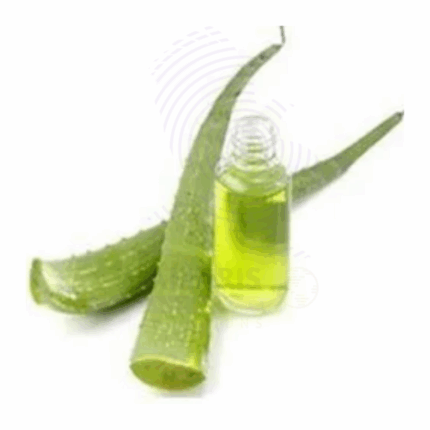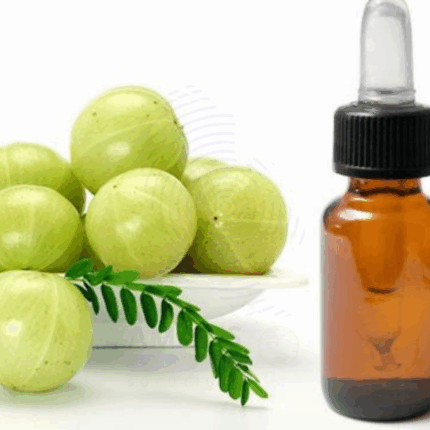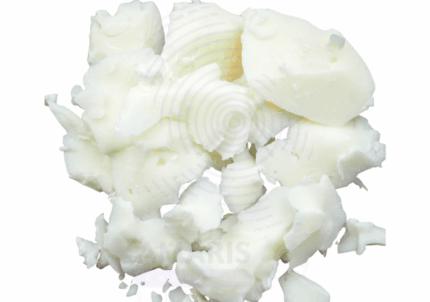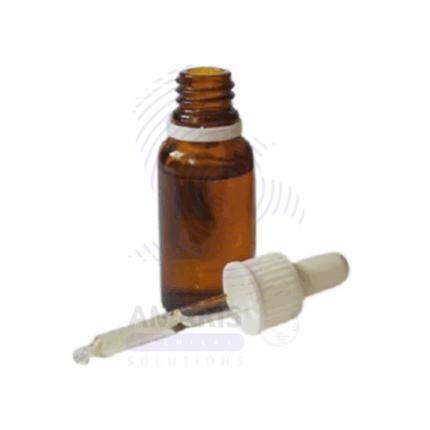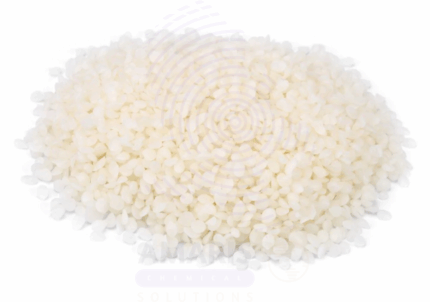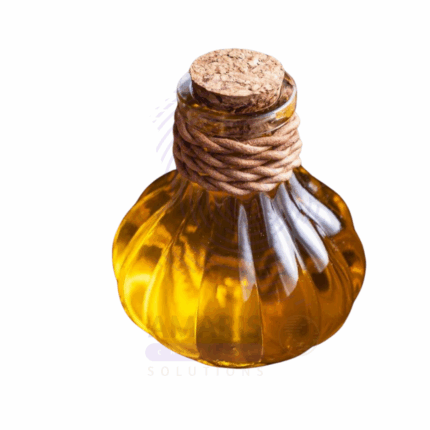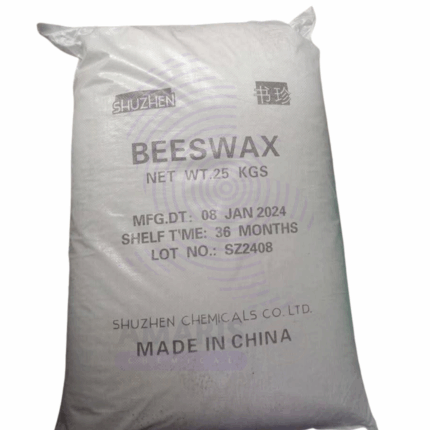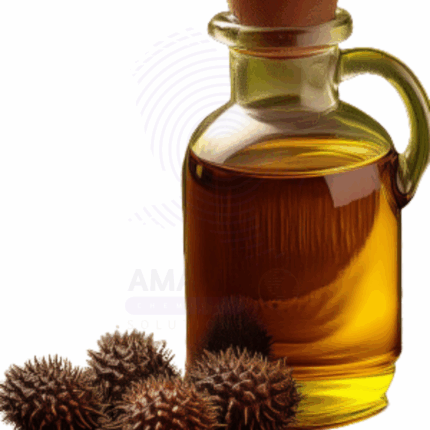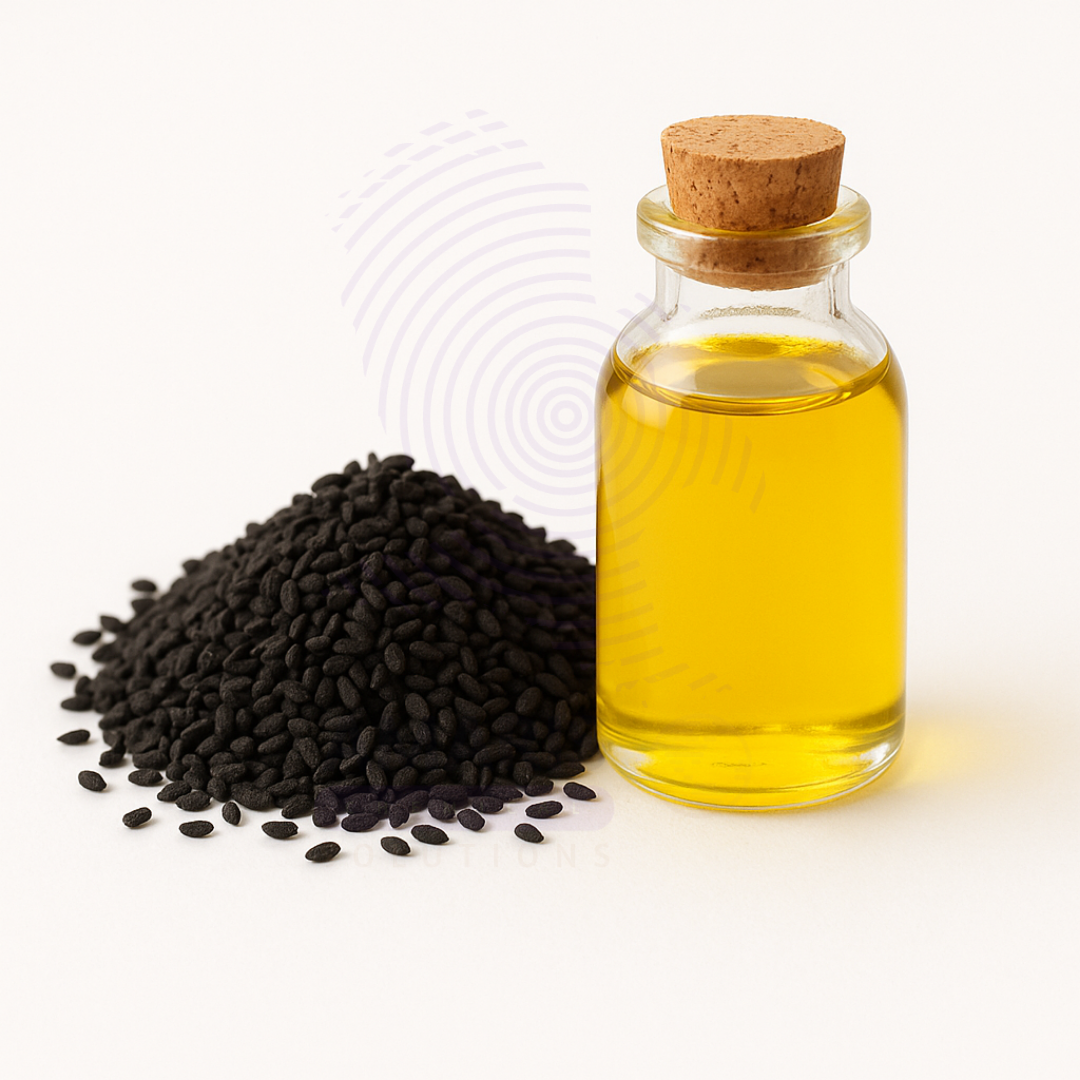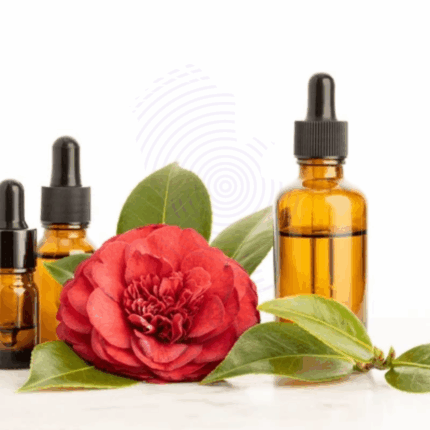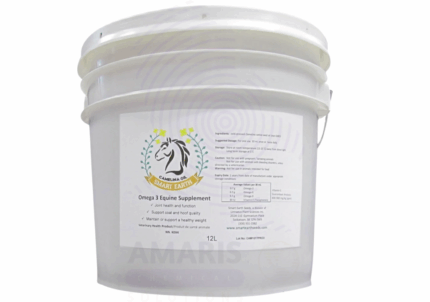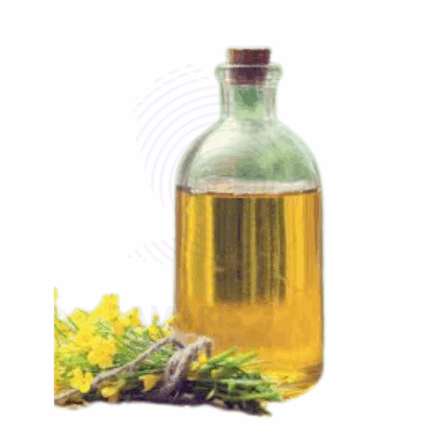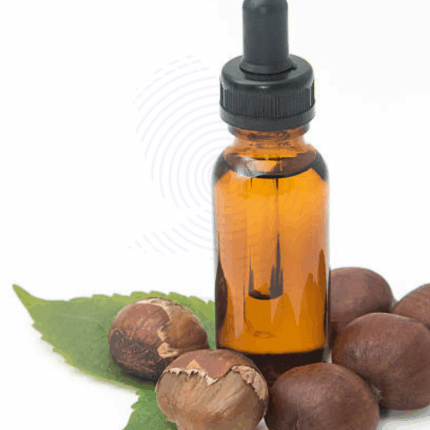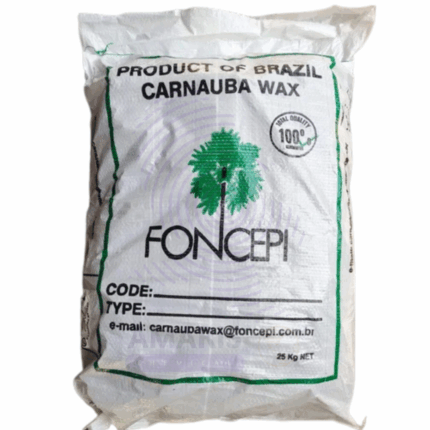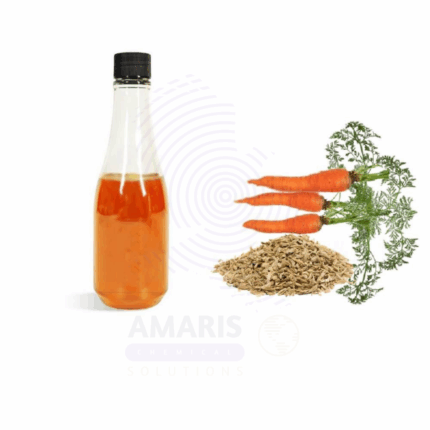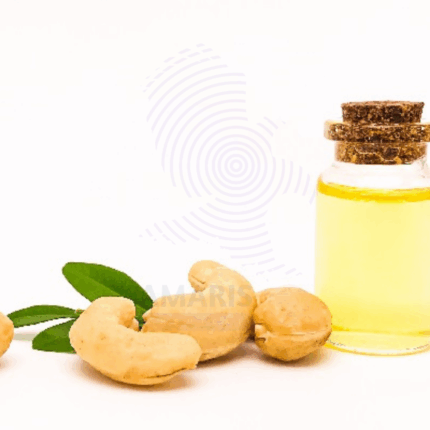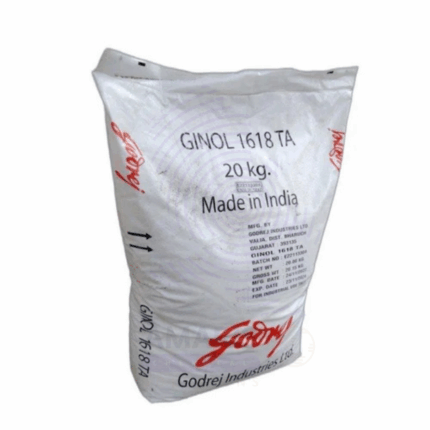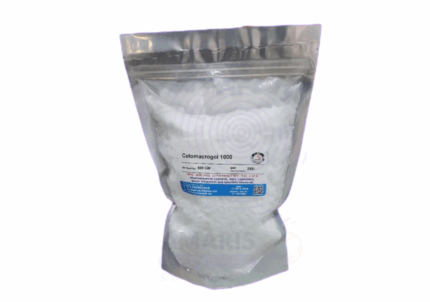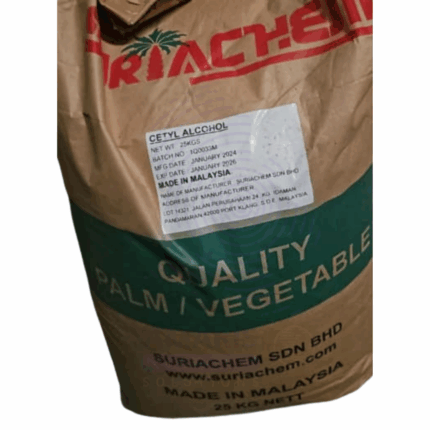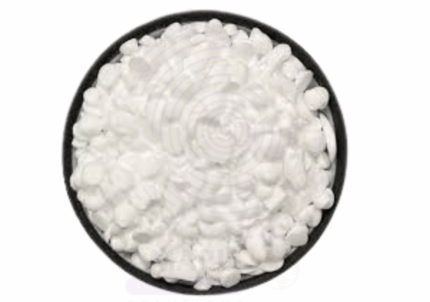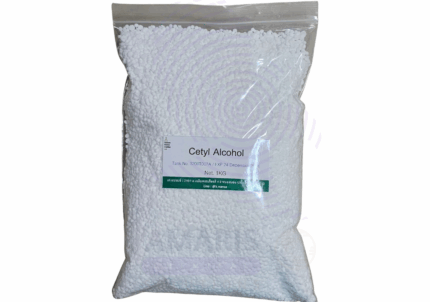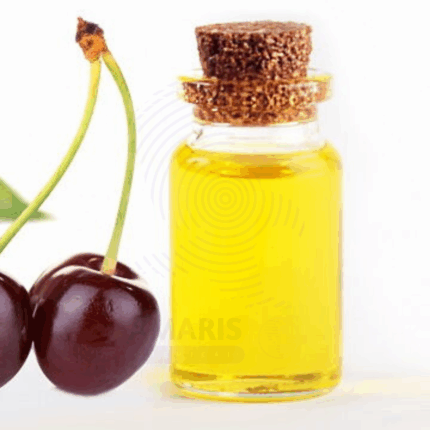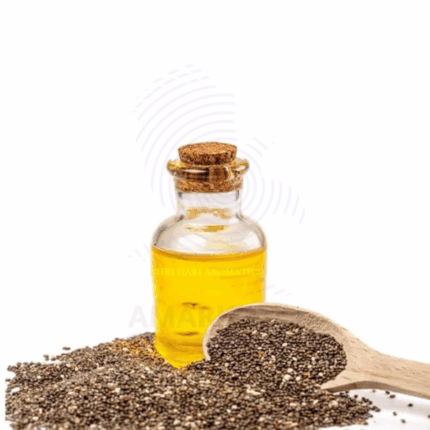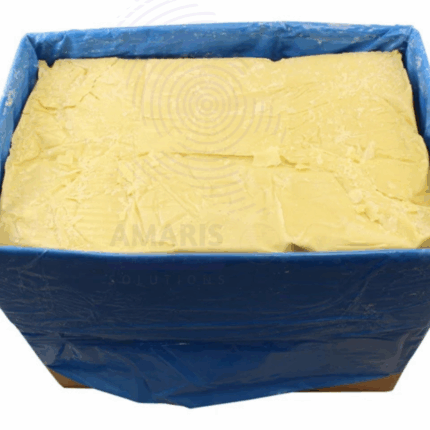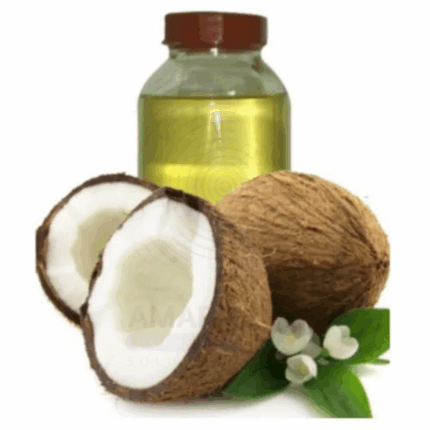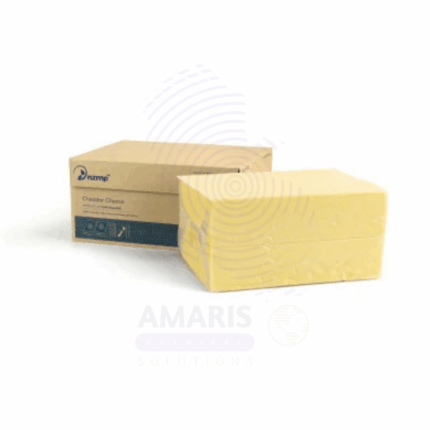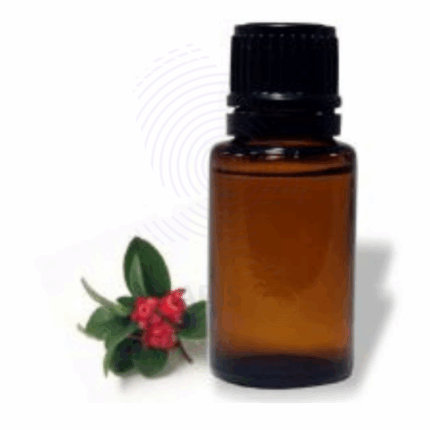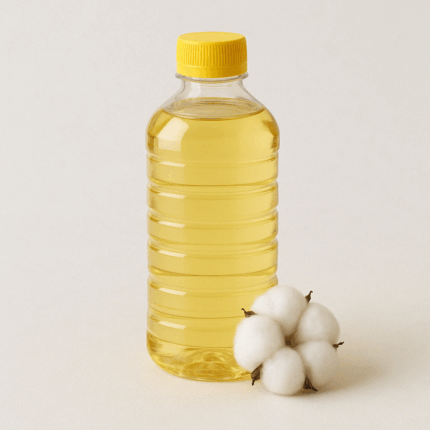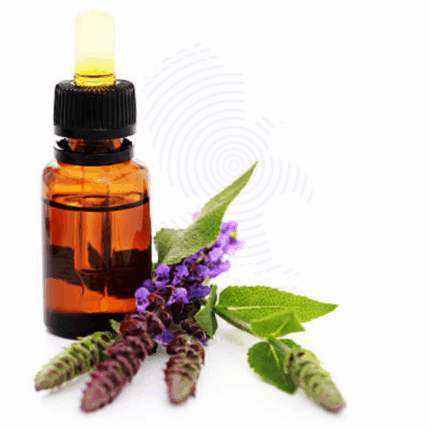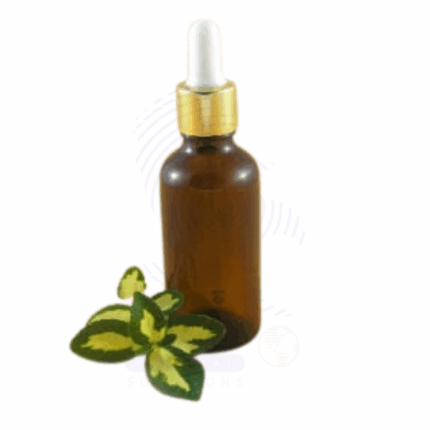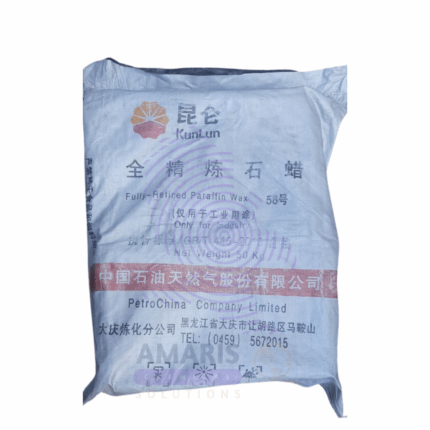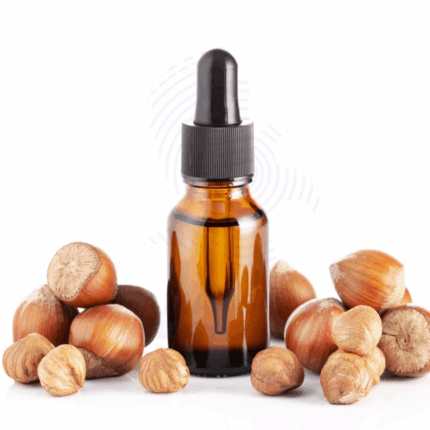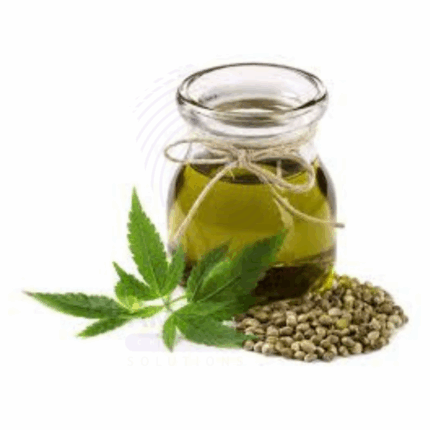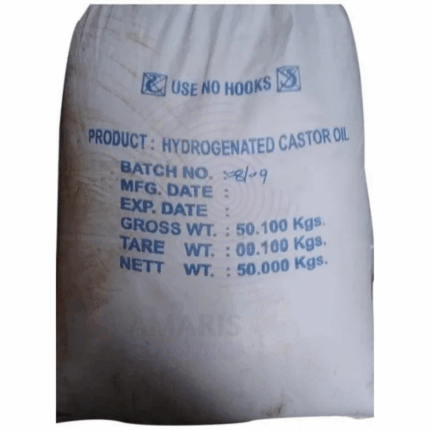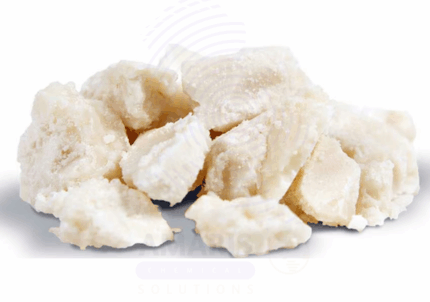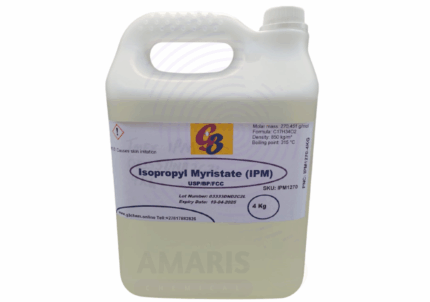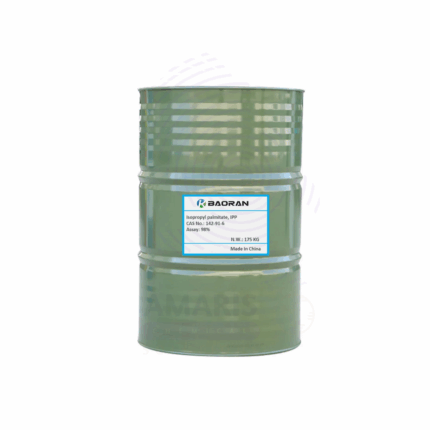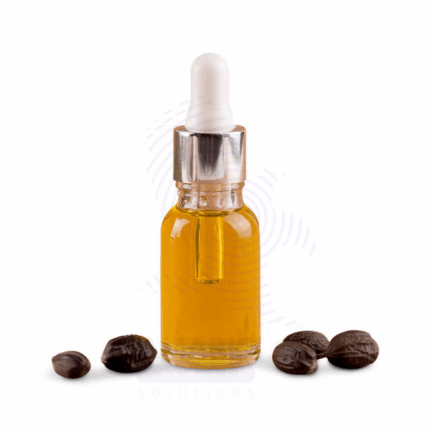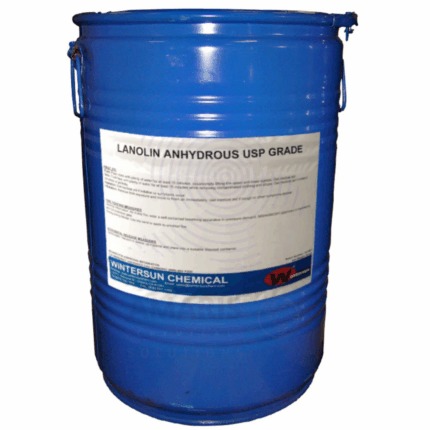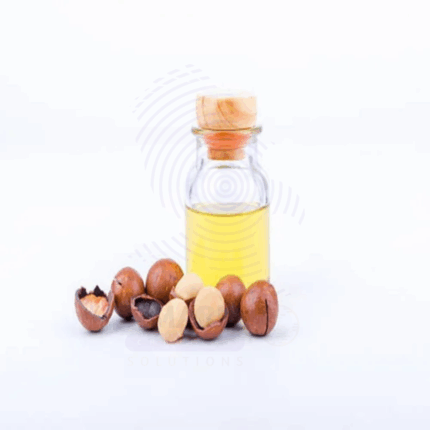
Emollients are moisturizing agents used in cosmetics and personal care products to soften, smooth, and hydrate the skin by forming a protective barrier that prevents moisture loss. Common emollients include natural oils (like jojoba or coconut oil), butters (such as shea or cocoa butter), and synthetic compounds (like silicones or fatty alcohols). They are key ingredients in lotions, creams, lip balms, and conditioners, helping to improve skin texture and relieve dryness. Emollients are especially beneficial for sensitive or eczema-prone skin, providing long-lasting hydration and improving skin elasticity.
Almond Butter
Almond Butter is a smooth, creamy paste made by grinding roasted or raw almonds into a nutrient-rich spread. It retains the natural oils and flavor of almonds, offering a mild, nutty aroma and rich, buttery texture. Almond Butter is packed with monounsaturated fats, protein, vitamin E, magnesium, and antioxidants, making it a highly valued ingredient in the food, nutraceutical, and personal care industries.
In cosmetics and skincare, Almond Butter is prized for its emollient properties, making it a popular base for creams, balms, and body butters. It provides skin-softening, moisturizing, and barrier-protecting benefits. In the food and beverage industry, it is used as a spread, in smoothies, baked goods, energy bars, and dairy alternatives. It is also included in specialty pet food and wellness formulations.
Almond Wax
Almond Wax is a plant-based wax derived from almond oil, typically used in cosmetics and skincare products. It is known for its emollient (moisturizing) properties, helping to soften and smooth the skin. Almond wax is rich in fatty acids and vitamin E, making it suitable for sensitive or dry skin. It is often used as a natural alternative to synthetic waxes in formulations like lip balms, creams, and lotions. Additionally, it provides a smooth texture and helps to stabilize emulsions in skincare products.
Almond Wax
Almond Wax is a natural, plant-based wax derived from the hydrogenation of almond oil (Prunus amygdalus dulcis). It is a creamy to white, semi-solid wax with a mild, nutty scent and excellent emollient properties. Almond Wax is rich in fatty acids and has a smooth, soft texture, making it ideal for use in cosmetic, personal care, and candle formulations.
Due to its gentle consistency, skin-friendly profile, and moisturizing capabilities, Almond Wax is widely used in body butters, balms, lip care products, massage bars, and artisan soaps. It functions as a natural alternative to petroleum-based waxes and provides structure, viscosity, and glide to formulations. It also finds application in soft wax blends for natural candle products.
Aloe Vera Oil
Aloe Vera Oil is an oil-based extract derived by infusing Aloe vera (Aloe barbadensis) leaves into a carrier oil such as coconut, soybean, or sunflower oil. It captures the beneficial compounds of aloe—including polysaccharides, vitamins, enzymes, and amino acids—in an oil-soluble form ideal for cosmetic, therapeutic, and personal care applications. Known for its soothing, anti-inflammatory, and moisturizing properties, Aloe Vera Oil is widely used in skin and hair care formulations.
This gentle, skin-friendly oil is suitable for sensitive skin and is commonly employed in after-sun products, healing ointments, massage oils, and anti-aging creams. It provides hydration, calms irritation, and promotes skin regeneration while adding emollient and conditioning benefits.
Amla Oil
Amla Oil, also known as Indian Gooseberry Oil, is a natural oil derived from the fruit of the Phyllanthus emblica tree, either through infusion of dried amla fruits in a carrier oil (like coconut or sesame) or via cold pressing. Rich in vitamin C, tannins, flavonoids, and essential fatty acids, amla oil is renowned for its rejuvenating and nourishing properties. It is widely used in hair care formulations to promote hair growth, strengthen follicles, and reduce hair fall and premature greying. Amla oil is also applied topically to skin for its antioxidant, anti-inflammatory, and moisturizing benefits. With a slightly earthy aroma and light to medium viscosity, it blends easily with other cosmetic ingredients and essential oils.
It is a staple in Ayurvedic formulations and finds use in both personal care and traditional wellness products. Its versatility also extends to massage blends and herbal preparations in the cosmetic and nutraceutical sectors.
Apricot Wax
Apricot Wax is a natural wax extracted from the kernels (seeds) of apricot fruit (Prunus armeniaca). It is a light, pale yellow to amber-colored wax known for its emollient, moisturizing, and film-forming properties. Apricot Wax is valued in cosmetics and personal care formulations for providing texture, stability, and a smooth, non-greasy feel. It is biodegradable, skin-friendly, and often used as a natural alternative to synthetic waxes. Derived through cold-pressing or solvent extraction, it contains natural fatty acids, esters, and vitamin E, contributing to its nourishing effects. Apricot Wax is commonly used in lip balms, creams, lotions, hair care products, and pharmaceutical ointments.
Avocado Oil
Avocado Oil is a nutrient-rich, plant-based oil cold-pressed from the pulp of ripe avocados (Persea americana). Recognized for its deep green color and mildly nutty aroma, this oil is highly valued for its high content of monounsaturated fatty acids, especially oleic acid, along with vitamins A, D, and E, sterols, lecithin, and antioxidants.
Due to its excellent penetration, moisturizing, and regenerative properties, Avocado Oil is widely used in cosmetics, personal care, pharmaceutical, and nutraceutical formulations. It helps in restoring skin elasticity, promoting collagen synthesis, and soothing inflammation, making it ideal for dry, sensitive, or aging skin. In hair care, it strengthens and softens hair, improves scalp health, and reduces dandruff.
Additionally, refined, food-grade Avocado Oil is used in cooking due to its high smoke point and nutritional profile. It is also increasingly found in dietary supplements and therapeutic blends
Avocado Wax
Avocado wax is a natural plant-derived wax extracted primarily from the pulp and seed of the avocado fruit (Persea americana). It appears as a hard, yellowish wax with excellent emollient, film-forming, and moisturizing properties. Valued for its biodegradability, compatibility with various formulations, and sustainability, avocado wax is widely used as a natural alternative to synthetic waxes in cosmetics, pharmaceuticals, food, and industrial applications.
Baobab Oil
Baobab Oil is a luxurious, cold-pressed oil extracted from the seeds of the Adansonia digitata (baobab) tree, native to Africa. Rich in omega fatty acids (especially omega-3, 6, and 9), vitamins A, D, E, and F, and powerful antioxidants, Baobab Oil is prized for its deep moisturizing, skin-rejuvenating, and anti-inflammatory properties. It is a light, non-greasy oil that absorbs quickly into the skin, making it ideal for a wide range of cosmetic and personal care applications.
Baobab Oil is especially suited for dry, sensitive, or mature skin. It supports skin elasticity, improves tone, and helps reduce the appearance of scars and stretch marks. In hair care, it nourishes and protects, leaving hair soft and manageable. Its natural stability and skin compatibility make it a premium ingredient in high-performance formulations.
Beeswax
Beeswax is a natural wax produced by honeybees of the genus Apis. It is secreted by worker bees from specialized glands and used to build honeycomb cells. Beeswax is a complex mixture of esters, fatty acids, and hydrocarbons, characterized by a pale yellow to brown color, a pleasant honey-like aroma, and a firm yet pliable texture. It has excellent emulsifying, binding, and protective properties, making it widely used in cosmetics, pharmaceuticals, food, and industrial applications. Beeswax is prized for its natural origin, biodegradability, and skin-friendly characteristics.
Black Castor Oil
Black Castor Oil is a highly viscous, nutrient-dense oil extracted from roasted castor beans (Ricinus communis). Unlike traditional castor oil, this variant is produced by roasting the beans before pressing, resulting in a dark amber to black hue and a distinct, smoky aroma. The roasting process enhances the oil’s ricinoleic acid content, giving it superior anti-inflammatory, antimicrobial, and moisturizing properties.
It is widely used in cosmetic, personal care, and pharmaceutical formulations due to its ability to promote hair growth, strengthen roots, hydrate dry skin, and soothe scalp conditions. It also acts as a natural humectant, drawing moisture into skin and hair. In traditional wellness and therapeutic practices, Black Castor Oil is valued for its warming and circulatory-boosting effects.
Black Cumin Seed Oil
Black Cumin Seed Oil, also known as Nigella Sativa Oil or Black Seed Oil, is a cold-pressed oil extracted from the seeds of the Nigella sativa plant. Revered for centuries in traditional medicine systems like Ayurveda and Unani, this oil is packed with thymoquinone, essential fatty acids, vitamins, and antioxidants that contribute to its potent anti-inflammatory, antimicrobial, and immune-boosting properties.
It is widely used in cosmetic, pharmaceutical, and nutraceutical formulations. Black Cumin Seed Oil supports skin healing, helps reduce acne and inflammation, and can nourish scalp and hair follicles. Internally, it is known to promote digestive health, respiratory wellness, and immune system support. The oil has a slightly bitter, pungent aroma and golden to dark amber color. It is available in cosmetic, pharmaceutical, and food grades for varied applications.
Camelina
Camelina (Camelina sativa), also known as false flax or gold-of-pleasure, is an ancient oilseed crop belonging to the Brassicaceae family. It produces small, golden-brown seeds that are rich in oil content, typically around 30-40%. The oil extracted from Camelina seeds is prized for its high content of omega-3 fatty acids, antioxidants, and bioactive compounds, making it valuable in food, feed, cosmetic, and industrial applications. Camelina oil has a mild, nutty flavor and a favorable fatty acid profile including linolenic acid, making it a sustainable alternative to traditional vegetable oils. The crop is noted for its short growing season, low input requirements, and adaptability to marginal soils and climates.
Candelilla Wax
Candelilla Wax is a natural vegetable wax derived from the leaves of the Euphorbia cerifera shrub, native to northern Mexico and the southwestern United States. It appears as a hard, brittle, light yellow to brown wax with a mild, characteristic odor. This wax is valued for its high melting point, gloss-enhancing properties, and excellent binding capabilities. It is widely used in cosmetics, pharmaceuticals, food, and industrial applications as a vegan alternative to beeswax. Its film-forming, emollient, and stabilizing attributes make it a multifunctional ingredient across several industries.
Canola Oil
Canola Oil is a light, non-greasy vegetable oil extracted from the seeds of the Canola plant (Brassica napus, Brassica rapa), a cultivar of rapeseed developed for its low erucic acid content. Rich in monounsaturated fats, omega-3 and omega-6 fatty acids, and vitamin E, it is known for its heart-healthy profile and neutral flavor.
Widely used in the food, cosmetic, pharmaceutical, and industrial sectors, Canola Oil serves as a versatile base oil for cooking, skincare formulations, softgel encapsulation, and biodiesel production. Its high smoke point and oxidative stability make it ideal for both cold and high-temperature applications.
Cape Chestnut Seed Oil
Cape Chestnut Seed Oil, also known as Yangu Oil, is a cold-pressed oil extracted from the seeds of the Cape Chestnut tree (Calodendrum capense), native to Southern Africa. It is prized in skincare for its non-comedogenic, UV-protective, and antioxidant-rich profile. With a light to medium texture and a mild, nutty aroma, the oil absorbs easily into the skin without clogging pores.
Rich in essential fatty acids, especially linoleic and oleic acid, as well as natural sun-protective compounds and polyphenols, Cape Chestnut Seed Oil is especially beneficial for sensitive, dry, or UV-exposed skin. It is commonly used in cosmetic formulations, hair care products, and aromatherapeutic applications for its protective and nourishing properties.
Carnauba Wax
Carnauba Wax is a natural vegetable wax obtained from the leaves of the Copernicia prunifera palm tree, native to northeastern Brazil. It appears as a hard, brittle, yellow to brownish-yellow wax with a faint, characteristic odor. Known as the “queen of waxes,” Carnauba Wax is prized for its exceptionally high melting point, glossy finish, and excellent hardness. It is a premium wax widely used in cosmetics, food, pharmaceuticals, automotive, and industrial applications as a natural, biodegradable alternative to synthetic waxes. Its film-forming, emulsifying, and protective properties make it highly versatile for use in coatings, polishes, and skincare products.
Cashew Nut Oil
Cashew Nut Oil is a light, golden to pale yellow oil extracted from the kernels of the cashew tree (Anacardium occidentale), native to tropical regions such as Brazil, India, and parts of Africa. The oil is obtained through cold-pressing or solvent extraction methods and is known for its emollient, antioxidant, and skin-conditioning properties.
Rich in oleic, linoleic, and palmitic acids, as well as vitamin E, phytosterols, and phenolic compounds, Cashew Nut Oil is used extensively in cosmetic and personal care applications, as well as in certain food and pharmaceutical formulations. Its light texture and high skin compatibility make it ideal for dry and sensitive skin, while its nutritive properties contribute to hair and scalp health.
Castor Oil
Castor Oil virgin is a pale yellow vegetable oil obtained through cold-pressing the seeds of the Ricinus communis plant. This method preserves its natural composition of ricinoleic acid, vitamins, and minerals. Known for its thick viscosity and mild, characteristic odor, it is a versatile oil with excellent moisturizing, lubricating, and therapeutic properties. It is widely used in cosmetics, pharmaceuticals, and industrial applications due to its unique chemical structure and beneficial effects.
Ceto Stearyl Alcohol
Ceto Stearyl Alcohol 1618TA is a high-quality fatty alcohol blend primarily composed of cetyl (C16) and stearyl (C18) alcohols. It appears as a white, waxy solid or flakes with a mild fatty odor. This blend is widely used as an emollient, thickener, and co-emulsifier in cosmetic, pharmaceutical, and industrial formulations. Ceto Stearyl Alcohol 1618TA offers excellent lubricity, thickening, and stabilizing properties, enhancing the texture, consistency, and moisturizing characteristics of creams, lotions, and hair care products. It serves as a skin conditioning agent and contributes to the structural integrity of emulsions.
Cetyl Alcohol
Cetyl Alcohol, also known as 1-Hexadecanol or Palmityl Alcohol, is a fatty alcohol derived primarily from natural sources such as palm oil and coconut oil. It appears as a waxy, white to pale yellow solid with a faint fatty odor. Cetyl Alcohol is widely used in cosmetic, pharmaceutical, and industrial formulations due to its emollient, emulsifying, thickening, and stabilizing properties. It helps improve texture, consistency, and moisturizing effects in personal care products. Cetyl Alcohol is compatible with many ingredients, making it a versatile multifunctional ingredient.
Cetyl Alcohol Flakes
Cetyl Alcohol Flakes is a high-purity fatty alcohol derived mainly from natural sources such as palm oil and coconut oil. Presented as white to off-white waxy flakes, this product contains at least 98% pure cetyl alcohol, ensuring consistent performance and quality. It is valued for its excellent emollient, thickening, and emulsifying properties and is widely used in personal care, pharmaceutical, and industrial formulations. The flake form facilitates easy handling, melting, and dosing in manufacturing processes. Cetyl Alcohol 98% Flakes contributes to the texture, stability, and moisturizing properties of various formulations, providing a non-greasy, smooth finish.
Cetyl Palmitate
Cetyl Palmitate is a naturally derived ester formed by the reaction of cetyl alcohol and palmitic acid. It appears as a white to off-white waxy solid with a mild fatty odor. This compound is widely used in cosmetic, pharmaceutical, and industrial formulations for its emollient, thickening, and texture-enhancing properties. Cetyl Palmitate imparts a smooth, creamy feel to products and contributes to improved stability and consistency in creams, lotions, balms, and ointments. Its film-forming and skin-conditioning attributes make it a preferred ingredient in personal care products as well as in specialty industrial applications.
Cetyl Stearyl Alcohol (CSA)
Cetyl Stearyl Alcohol (CSA), also known as Cetearyl Alcohol, is a blended fatty alcohol consisting primarily of cetyl (C16) and stearyl (C18) alcohols. It appears as white to pale yellow waxy flakes or pellets with a mild fatty odor. CSA is widely used in cosmetics, pharmaceuticals, and personal care products as an emollient, thickener, and co-emulsifier. It enhances texture, improves stability, and provides a smooth, velvety skin feel in formulations. Being a non-ionic surfactant, it also aids in stabilizing oil-in-water emulsions and is favored for its gentle nature on the skin and hair.
Cherry Kernel Oil
Cherry Kernel Oil, extracted from the seeds of sweet cherries (Prunus avium), is a lightweight, golden-yellow carrier oil with a mild, nutty aroma. This oil is produced through cold pressing of cherry kernels and is rich in oleic and linoleic acids, along with naturally occurring tocopherols (Vitamin E) and phytosterols. Known for its excellent emollient, antioxidant, and regenerative properties, it absorbs quickly and nourishes the skin without leaving a greasy residue.
It is widely used in skin care, hair care, baby products, and aromatherapy. Its gentle nature makes it suitable for sensitive and mature skin, while its light texture and stability make it a favored base oil in cosmetic formulations, massage blends, and eco-conscious personal care lines.
Chia Oil
Chia Oil is a cold-pressed, nutrient-rich oil derived from the seeds of the Salvia hispanica plant, native to Central and South America. This light, fast-absorbing oil is celebrated for its exceptionally high content of omega-3 fatty acids (especially alpha-linolenic acid), antioxidants, vitamins, and phytonutrients. It has a mild, nutty aroma and is typically golden in color.
Due to its powerful antioxidant and anti-inflammatory properties, Chia Oil is used extensively in cosmetics, personal care, nutraceuticals, and food products. It helps support skin barrier function, reduce redness, and improve skin elasticity and hydration. In food and dietary supplements, it’s valued for its cardiovascular, brain, and skin health benefits.
Cocoa Butter
Cocoa Butter, also known as Theobroma oil, is a pale-yellow, edible fat extracted from cocoa beans, primarily from Theobroma cacao. It has a smooth, creamy texture and a mild, characteristic chocolate aroma. Cocoa Butter is solid at room temperature but melts near body temperature, which gives it a luxurious feel when applied to skin or consumed. It is highly valued for its emollient, moisturizing, and protective properties. Cocoa Butter is widely used in cosmetics, pharmaceuticals, food, and confectionery industries. Its stable composition rich in fatty acids such as stearic, palmitic, and oleic acids imparts excellent oxidative stability and a long shelf life.
Coconut Oil Refined
Coconut Oil Refined is a purified oil extracted from dried coconut meat (copra) that undergoes refining, bleaching, and deodorizing (RBD) to remove impurities, odor, and flavor. The resulting oil is clear, colorless to pale yellow, with a neutral scent and a high smoke point, making it suitable for diverse applications. It is rich in medium-chain triglycerides (MCTs) that offer moisturizing, antimicrobial, and emollient properties. Refined Coconut Oil is widely used in cosmetic formulations, pharmaceutical excipients, food products, and cleaning agents for its versatility, stability, and skin-friendly characteristics.
Coffee Butter
Coffee Butter is a natural, plant-derived fat extracted primarily from the coffee seed pulp or coffee cherry, sometimes from the coffee bean itself. It is a creamy, pale yellow to light brown solid at room temperature with a mild coffee aroma. Coffee Butter is rich in fatty acids, antioxidants, and vitamins, making it a valuable ingredient in cosmetics, skincare, and specialty food products. Known for its emollient, moisturizing, and antioxidant properties, Coffee Butter helps to nourish and protect the skin while providing a pleasant sensory experience. It is gaining popularity as a sustainable by-product of coffee processing, contributing to zero-waste initiatives.
Cognac Green Oil
Cognac Green Oil is an essential oil distilled from the lees (fermented residue) of wine production, specifically from the Vitis vinifera (grapevine) species used in Cognac manufacturing. This oil carries a fruity, dry, slightly fermented aroma with green and woody undertones. Its scent is highly prized in fine perfumery and niche cosmetic formulations due to its top-note brightness and subtle complexity.
Beyond perfumery, Cognac Green Oil is used in gourmet food flavoring (in food-grade form), aromatherapy blends, and artisanal products. With its natural origin and distinct organoleptic profile, it offers both aromatic elegance and versatility in applications.
Cotton Seed Oil
Cotton Seed Oil is a light, odorless, vegetable oil extracted from the seeds of the cotton plant (Gossypium hirsutum and Gossypium herbaceum) through solvent extraction and refining processes. It is pale yellow with a neutral flavor, making it ideal for culinary, cosmetic, and industrial applications. Rich in polyunsaturated fatty acids, tocopherols, and antioxidants, Cotton Seed Oil is valued for its stability and high smoke point in cooking, as well as its emollient and conditioning properties in skin and hair care products.
In cosmetic formulations, it helps soften, nourish, and protect skin and hair, while in food production, it is used in frying oils, dressings, and snacks. Industrially, it finds applications in biodiesel production and soap manufacturing.
Dimethicone Silicon Oil
Dimethicone Silicon Oil, also known as polydimethylsiloxane (PDMS) or silicone oil, is a clear, odorless, and non-volatile silicone-based polymer widely used for its lubricating, anti-foaming, water-repellent, and skin-conditioning properties. It is a linear silicone polymer composed of repeating dimethylsiloxane units. Dimethicone exhibits excellent thermal stability, chemical inertness, and low surface tension, making it highly versatile in pharmaceutical, cosmetic, personal care, industrial, and food applications. It is available in various viscosities, from very low to high viscosity oils, enabling tailored formulations.
Echium Seed Oil
Echium Seed Oil is a cold-pressed oil extracted from the seeds of the Echium plantagineum, native to the Mediterranean region. It is rich in omega-3 (ALA), omega-6 (GLA), and omega-9 fatty acids, offering excellent skin conditioning and anti-inflammatory benefits. It is widely used in cosmetics, personal care, and natural therapeutic products for soothing irritated skin, enhancing skin barrier repair, and providing antioxidant protection.
Elderberry Seed Oil
Elderberry Seed Oil is a natural, cold-pressed oil extracted from the seeds of the Sambucus nigra plant. It is prized for its rich content of essential fatty acids, antioxidants, and vitamins, offering nourishing and rejuvenating benefits for skin and hair. This lightweight oil absorbs quickly and is valued for its moisturizing, anti-inflammatory, and anti-aging properties. Elderberry Seed Oil is commonly used in cosmetics, personal care, and therapeutic formulations.
Fatty Acid
Fatty acids are a group of carboxylic acids consisting of long aliphatic chains, which can be either saturated or unsaturated. They are typically derived from natural fats and oils through hydrolysis or saponification and appear as colorless to pale yellow liquids or solids depending on the chain length and degree of saturation. Fatty acids are fundamental building blocks in biochemistry and industrial chemistry, serving as raw materials in the manufacture of soaps, detergents, lubricants, cosmetics, plastics, and food additives. Their amphiphilic nature—containing both hydrophilic (carboxyl group) and hydrophobic (alkyl chain) components—makes them versatile for various chemical and industrial applications.
Fully Refined Paraffin Wax
Fully Refined Paraffin Wax is a highly purified, odorless, white to pale yellow wax obtained from the refining of petroleum-derived crude paraffin wax. It consists primarily of saturated hydrocarbons (alkanes) with chain lengths typically between C20 and C40. Due to its excellent chemical stability, non-toxicity, and versatility, Fully Refined Paraffin Wax is widely used across numerous industries including cosmetics, pharmaceuticals, food packaging, candle making, rubber processing, and electrical insulation. It exhibits a high melting point, low volatility, and good water resistance.
Hazelnut Oil
Hazelnut Oil is a light, nutty-scented carrier oil extracted from the nuts of the hazelnut tree (Corylus avellana) through cold pressing. Rich in oleic acid, vitamin E, and antioxidants, it is prized for its moisturizing, nourishing, and skin-repairing properties. Known for its fast absorption and non-greasy feel, Hazelnut Oil is widely used in skincare, hair care, and cosmetic formulations. It helps balance oily skin, tighten pores, and improve skin elasticity. Additionally, it finds applications in food flavoring and pharmaceutical products as a natural emollient and carrier oil.
Hemp Seed Oil
Hemp Seed Oil is a cold-pressed oil extracted from the seeds of the Cannabis sativa plant. Unlike CBD or THC oils, hemp seed oil contains no cannabinoids and is valued for its rich content of essential fatty acids, including omega-3 and omega-6, as well as antioxidants and vitamins A, C, and E. It has a light to dark green color and a mild, nutty aroma.
Due to its highly moisturizing, anti-inflammatory, and skin-rejuvenating properties, it is widely used in skincare, haircare, pharmaceuticals, and nutritional supplements. It also finds applications in paints, lubricants, and industrial formulations thanks to its stability and bio-based origin.
Hydrogenated Castor Oil
Hydrogenated Castor Oil, also known as castor wax, is a hard, brittle, and high-melting-point wax derived by the hydrogenation of pure castor oil. This white to off-white, odorless substance is non-toxic and insoluble in water but dispersible in surfactant systems. Its primary component is hydrogenated ricinoleic acid triglyceride, and it is prized for its excellent lubricating, emulsifying, thickening, and consistency-enhancing properties.
Due to its stability, non-reactivity, and film-forming capability, Hydrogenated Castor Oil is widely used in cosmetics, personal care, pharmaceuticals, industrial lubricants, coatings, plastics, and more. It improves product texture, enhances emulsion stability, and provides moisture retention in skincare applications.
Illipe Butter
Illipe Butter is a natural, hard vegetable fat derived from the nuts of the Shorea stenoptera tree, native to the rainforests of Borneo. Known for its high melting point and rich moisturizing profile, Illipe Butter is prized in cosmetic, pharmaceutical, and food applications for its emollient qualities and stability. It closely resembles cocoa butter in composition and function, making it a sustainable alternative in formulations requiring consistency and long shelf life. The butter appears as a pale yellow to off-white solid with a mild, neutral aroma.
Isopropyl Myristate
Isopropyl Myristate is a clear, colorless, and oily liquid ester formed by the reaction of isopropyl alcohol and myristic acid. It has a mild, pleasant odor and excellent spreading properties. IPM is widely used in cosmetics, pharmaceuticals, and industrial applications as an emollient, solvent, and penetration enhancer due to its ability to improve texture and absorption of topical formulations.
Isopropyl Palmitate
Isopropyl Palmitate IPP is a clear, colorless to pale yellow oily liquid formed by the esterification of isopropyl alcohol and palmitic acid. It has a mild odor and is widely used in cosmetic, pharmaceutical, and industrial formulations as an emollient, lubricant, and solvent. IPP is valued for its excellent skin absorption, non-greasy feel, and ability to improve texture and spreadability of topical products.
Jojoba Oil
Jojoba Oil is a golden-yellow liquid wax extracted from the seeds of the jojoba plant (Simmondsia chinensis). Unlike typical vegetable oils, it is actually a liquid wax ester, closely resembling the natural oils (sebum) produced by human skin. This unique composition gives jojoba oil excellent moisturizing, conditioning, and balancing properties without clogging pores. It is highly stable, resistant to rancidity, and rich in antioxidants, vitamins E and B complex, and minerals. Widely used in cosmetics, personal care, and pharmaceutical products, jojoba oil supports skin hydration, protects against environmental damage, and promotes healthy hair.
Jojoba Wax
Jojoba Wax is a natural, golden-yellow to amber-colored wax ester extracted from the seeds of the jojoba plant (Simmondsia chinensis). Unlike traditional vegetable oils, jojoba wax is chemically a liquid wax, known for its excellent stability, moisturizing properties, and similarity to human sebum. It is odorless or mildly nutty and is widely used in cosmetics, personal care, and pharmaceutical applications as an emollient, thickener, and skin conditioning agent.
Lanolin Anhydrous
Lanolin Anhydrous is a purified, waxy substance derived from the sebaceous glands of sheep’s wool. It appears as a yellow to amber, semi-solid wax with a characteristic mild odor. Lanolin is highly valued for its excellent emollient, moisturizing, and protective properties, making it widely used in cosmetic, pharmaceutical, and personal care formulations. The anhydrous form is free from water, which enhances its stability and shelf life, and allows it to act as a natural barrier to lock moisture into the skin.
Macadamia Nut Oil
Macadamia Nut Oil is a rich, golden, cold-pressed oil extracted from the nuts of the Macadamia integrifolia tree. Known for its high content of monounsaturated fatty acids—particularly oleic and palmitoleic acid—it closely resembles the natural oils found in human skin. It is lightweight, non-greasy, and easily absorbed, making it ideal for cosmetic, personal care, and culinary applications.
Highly emollient and nourishing, Macadamia Nut Oil is used in skincare, haircare, massage blends, and anti-aging formulations. Its oxidative stability also makes it suitable for use in food products, including cooking oils and dressings. It provides deep moisturization, improves skin elasticity, and protects against environmental stressors.


 Preservatives(food)
Preservatives(food) Flavor Enhancers
Flavor Enhancers Acidulants
Acidulants Sweeteners
Sweeteners Antioxidants
Antioxidants Colorants(food)
Colorants(food) Nutraceutical Ingredients (food)
Nutraceutical Ingredients (food) Nutrient Supplements
Nutrient Supplements Emulsifiers
Emulsifiers
 Collectors
Collectors Dust Suppressants
Dust Suppressants Explosives and Blasting Agents
Explosives and Blasting Agents Flocculants and Coagulants
Flocculants and Coagulants Frothers
Frothers Leaching Agents
Leaching Agents pH Modifiers
pH Modifiers Precious Metal Extraction Agents
Precious Metal Extraction Agents
 Antioxidants(plastic)
Antioxidants(plastic) Colorants (Pigments, Dyes)
Colorants (Pigments, Dyes) Fillers and Reinforcements
Fillers and Reinforcements Flame Retardants
Flame Retardants Monomers
Monomers Plasticizers
Plasticizers Polymerization Initiators
Polymerization Initiators Stabilizers (UV, Heat)
Stabilizers (UV, Heat)
 Antifoaming Agents
Antifoaming Agents Chelating Agents
Chelating Agents Coagulants and Flocculants
Coagulants and Flocculants Corrosion Inhibitors
Corrosion Inhibitors Disinfectants and Biocides
Disinfectants and Biocides Oxidizing Agents
Oxidizing Agents pH Adjusters
pH Adjusters Scale Inhibitors( water)
Scale Inhibitors( water)
 Antioxidants(cosmetic)
Antioxidants(cosmetic) Emollients
Emollients Fragrances and Essential Oils
Fragrances and Essential Oils Humectants
Humectants Preservatives
Preservatives Surfactants(cosmetic)
Surfactants(cosmetic) Thickeners
Thickeners UV Filters
UV Filters
 Fertilizers
Fertilizers Soil Conditioners
Soil Conditioners Plant Growth Regulators
Plant Growth Regulators Animal Feed Additives
Animal Feed Additives Biostimulants
Biostimulants Pesticides (Herbicides, Insecticides, Fungicides)
Pesticides (Herbicides, Insecticides, Fungicides)
 Active Pharmaceutical Ingredients (APIs)
Active Pharmaceutical Ingredients (APIs) Excipients
Excipients Solvents(pharmaceutical)
Solvents(pharmaceutical) Antibiotics
Antibiotics Antiseptics and Disinfectants
Antiseptics and Disinfectants Vaccine Adjuvants
Vaccine Adjuvants Nutraceutical Ingredients (pharmaceutical)
Nutraceutical Ingredients (pharmaceutical) Analgesics & Antipyretics
Analgesics & Antipyretics
 Analytical Reagents
Analytical Reagents Solvents(lab)
Solvents(lab) Chromatography Chemicals
Chromatography Chemicals Spectroscopy Reagents
Spectroscopy Reagents microbiology-and-cell-culture-reagents
microbiology-and-cell-culture-reagents Molecular Biology Reagents
Molecular Biology Reagents Biochemical Reagents
Biochemical Reagents Inorganic and Organic Standards
Inorganic and Organic Standards Laboratory Safety Chemicals
Laboratory Safety Chemicals Specialty Laboratory Chemicals(Special Laboratory Equipment)
Specialty Laboratory Chemicals(Special Laboratory Equipment)
 Demulsifiers
Demulsifiers Hydraulic Fracturing Fluids
Hydraulic Fracturing Fluids Scale Inhibitors(oil)
Scale Inhibitors(oil) Surfactants(oil)
Surfactants(oil) Drilling Fluids
Drilling Fluids
 Dyes and Pigments
Dyes and Pigments Bleaching Agents
Bleaching Agents Softening Agents
Softening Agents Finishing Agents
Finishing Agents Antistatic Agents
Antistatic Agents
 Admixtures
Admixtures Waterproofing Agents
Waterproofing Agents Sealants and Adhesives
Sealants and Adhesives Curing Compounds
Curing Compounds Concrete Repair Chemicals
Concrete Repair Chemicals Anti-Corrosion Coatings
Anti-Corrosion Coatings
 Surfactants(cleaning)
Surfactants(cleaning) Builders
Builders Enzymes
Enzymes Solvents (Cleaning)
Solvents (Cleaning) Fragrances
Fragrances
 Electronic Chemicals
Electronic Chemicals Catalysts
Catalysts Lubricants
Lubricants Photographic Chemicals
Photographic Chemicals Refrigerants
Refrigerants Automotive chemicals
Automotive chemicals Pyrotechnic Chemicals
Pyrotechnic Chemicals
 Biodegradable Surfactants
Biodegradable Surfactants Bio-based Solvents
Bio-based Solvents Renewable Polymers
Renewable Polymers Carbon Capture Chemicals
Carbon Capture Chemicals Wastewater Treatment Chemicals
Wastewater Treatment Chemicals
 Pigments
Pigments Solvents(paint)
Solvents(paint) Specialty Coatings
Specialty Coatings Binders/Resins
Binders/Resins Additives
Additives Driers
Driers Anti-Corrosion Agents
Anti-Corrosion Agents Functional Coatings
Functional Coatings Application-Specific Coatings
Application-Specific Coatings
 Leavening Agents
Leavening Agents Dough Conditioners
Dough Conditioners Flour Treatments
Flour Treatments Fat Replacers
Fat Replacers Decoratives
Decoratives Preservatives(baking)
Preservatives(baking)
 Plasticizers & Softeners
Plasticizers & Softeners Reinforcing Agents
Reinforcing Agents Adhesion Promoters
Adhesion Promoters Vulcanizing Agents
Vulcanizing Agents Antidegradants
Antidegradants Blowing Agents
Blowing Agents Fillers & Extenders
Fillers & Extenders Accelerators & Retarders
Accelerators & Retarders

















